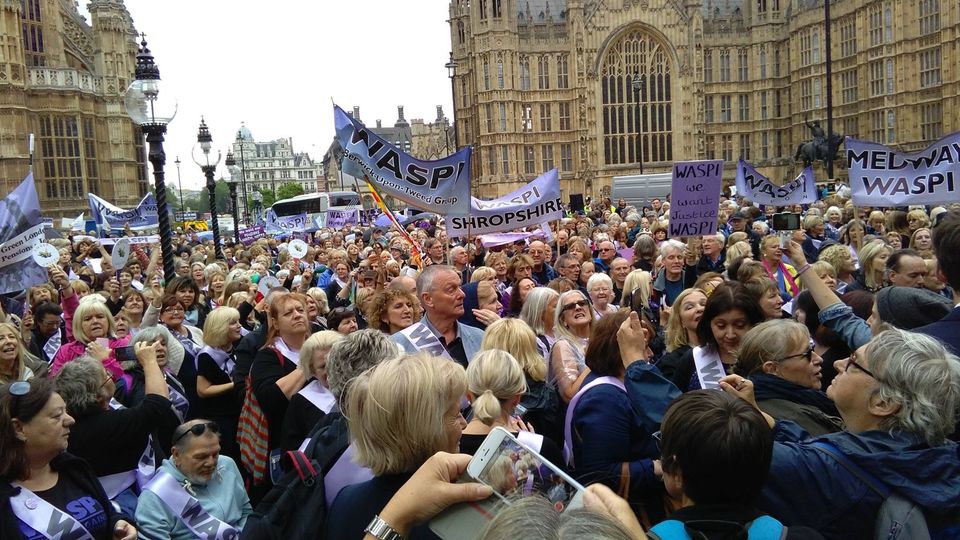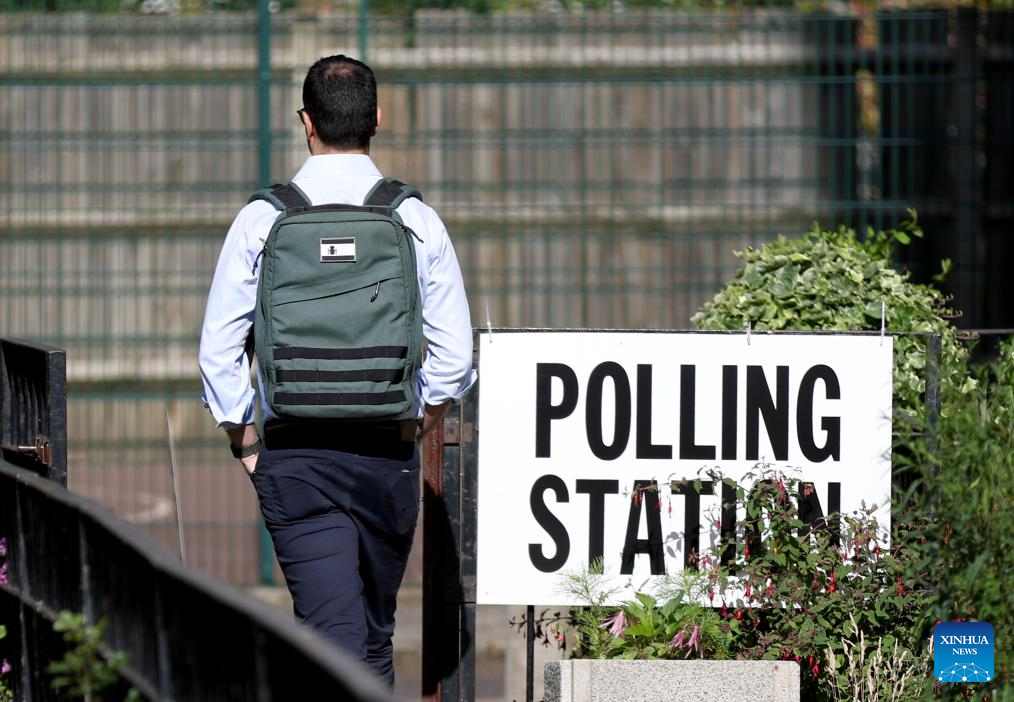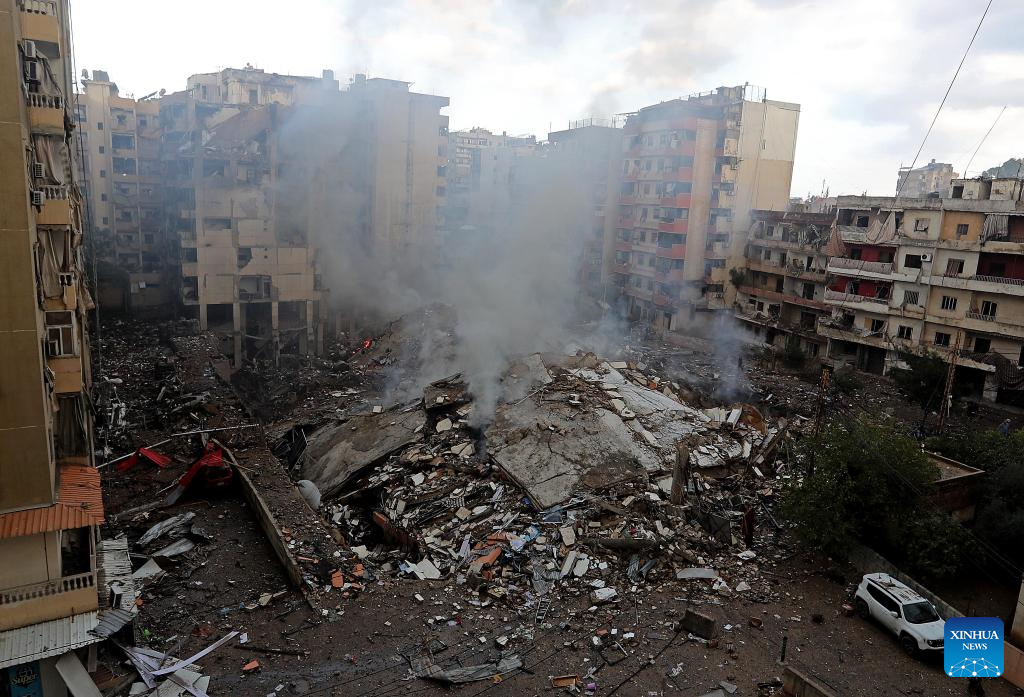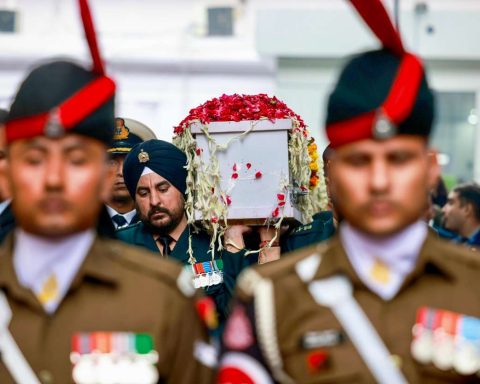The ICC issued the warrants against Israeli Prime Minister Benjamin Netanyahu, his former defense minister Yoav Gallant, and Hamas leader Ibrahim Al-Masri…reports Asian Lite News
Britain would follow due process if Benjamin Netanyahu visited the UK, foreign minister David Lammy said on Monday, when asked if London would fulfil the International Criminal Court’s arrest warrant against the Israeli prime minister.
“We are signatories to the Rome Statute, we have always been committed to our obligations under international law and international humanitarian law,” Lammy told reporters at a G7 meeting in Italy.
“Of course, if there were to be such a visit to the UK, there would be a court process and due process would be followed in relation to those issues.”
The ICC issued the warrants on Thursday against Israeli Prime Minister Benjamin Netanyahu, his former defense minister Yoav Gallant, and Hamas leader Ibrahim Al-Masri for alleged crimes against humanity.
Several EU states have said they will meet their commitments under the statute if needed, but Hungarian Prime Minister Viktor Orban has invited Netanyahu to visit his country, assuring him he would face no risks if he did so.
“The states that signed the Rome convention must implement the court’s decision. It’s not optional,” Josep Borrell, the EU’s top diplomat, said during a visit to Cyprus for a workshop of Israeli and Palestinian peace activists. Those same obligations were also binding on countries aspiring to join the EU, he said.
Lammy warned over rise of extremism in Bangladesh
Lammy has been warned that the UK could be pulled into another global flashpoint over the rapidly destabilising situation in Bangladesh.
A cross-party group of MPs have written to the foreign secretary with a major report into Bangladesh listing a series of alarming conclusions, including the gaining of ground by Islamist extremists following the collapse of Sheikh Hasina’s government at the start of August 2024.
The all-party parliamentary group (APPG) for the Commonwealth has recorded more than 2,000 atrocities since the fall of Hasani’s government and warned that the current regime may be weaponsing the legal system to exact revenge.
Any escalation in Bangladesh could have potential fallout in the UK with the 2021 census recording 644,881 people of Bangladeshi descent in England and Wales – 1.1 per cent of the population.
The collapse of the government impacted Treasury minister Tulip Siddiq, whose aunt is the ousted Bangladeshi prime minister and maternal grandfather was its founding president.
APPG chairman Tory MP Andrew Rosindell said: “This report will be a step in our efforts to raise awareness of issues affecting important Commonwealth partners.
“The findings will be shared with the government, charities, and other stakeholders involved with Bangladesh and the Commonwealth. It is hoped that these issues are heard within Westminster and Whitehall, and this report helps to inform parliamentarians and decision makers.”
The report notes: “Despite the violence and turmoil, the fall of Sheikh Hasina’s government at the start of August 2024 was met by many with great joy and hope. However, we have also received evidence that raises questions about the efficacy of the new interim regime. There is an urgent need to end the culture of using the law as a political weapon, and that human rights and the rule of law need to be upheld. A failure to do this will not reflect well on the new interim regime of Professor Muhammad Yunas.”
The APPG said that it received evidence that murder charges are being slapped on former ministers, Awami League leaders, MPs, former judges, scholars, lawyers and on journalists “in such numbers to raise questions around their credibility”.
Highlighting reports of 1,000 deaths by the end of August, the MPs and peers added: “We have heard the security situation in some parts of Bangladesh remains extremely dangerous over three months after the initial student protests that led to the fall of Sheikh Hasina and the formation of the interim government.”
UK sanctions 30 more ships in Russia’s ‘shadow fleet’
Meanwhile, the British government announced sanctions on 30 ships it claims are part of Russia’s “shadow fleet,” bringing the total number of vessels under U.K. restrictions to 73.
Lammy called the move the U.K.’s “largest sanctions package” yet against tankers and cargo ships used by Moscow to circumvent export and oil embargoes to fund its war against Ukraine.
The U.K. also imposed sanctions on two Russian insurers accused of enabling the “shadow fleet,” which operates under dubious ownership or without proper insurance. These vessels, often carrying Russian oil and gasoline while flying the flag of another country, allow the Kremlin to continue exporting despite sanctions and the global oil price cap.
According to a Foreign Commonwealth and Development Office (FCDO) statement, half of the ships hit by the latest sanctions transported more than $4.3 billion worth of oil and oil products over the last year. Lammy announced the sanctions during a meeting of G7 foreign ministers in Italy, noting that the new restrictions surpass the number of ships currently targeted by the United States and the European Union.
The FCDO emphasized that the sanctions “are working,” with Russia increasingly reliant on states like North Korea and Iran for military hardware. It also pointed out that two oil tankers, Artemis (flagged to Gabon) and Sea Fidelity (flagged to Honduras), had been “idling uselessly in the Baltic Sea” since being sanctioned last month.
ALSO READ:
ALSO READ: Russia-Ukraine war enters the danger zone












